Confused? Got problems with your story?
Panicking before your
publication deadline or thesis defense?
I can help!
I specialize in working with new commercial fiction writers, neurodivergent and/or LGBT+ writers, and historians. I can catch your plotholes, help you figure out how long an industry-standard page is, coach you through the writing of your dream novel, control your commas, and/or check your footnotes. My job is to enhance your writing so that you sound like the very best version of yourself while shortening your total time from concept to publication.
I offer a variety of services at affordable, industry-standard rates. Contact me with any questions and I will respond to you shortly.
Services
I work in these commercial genres: fantasy, science fiction, cozy mystery, and historical romance. I will happily work on urban or paranormal fantasy, but I don’t work with horror, grimdark, or dystopia. Does your work contain vampires and werewolves? Great! That’s me. Is your work set in a dysfunctional world in which nothing improves? I would not be your ideal editor. I am also not ideal for literary fiction, experimental fiction, young adult or mid-grade fiction, or children’s books.
In addition, I am qualified to copyedit papers, academic dissertations, and master’s theses in history and to provide whole-dissertation evaluations and coaching services for both public and academic historians.
My rates tend to fall in the “average” section on the EFA rate chart. Contact me for rates for your particular manuscript.
I offer the following services:
Book coaching: A combination of book midwife, project manager, and developmental editor, a book coach will work with you over several sessions to ensure that your book avoids the most common pitfalls in the shortest amount of time while helping you avoid or learn to deal with the bigger issues that may be impeding your book’s development, such as lack of time. Book coaching is sold by package.
Developmental editing: A developmental editor works with an author on big-picture items such as structure, plot, and character arc. An author can expect to receive several emails and/or Zoom calls about their work, comments throughout, and at least one editorial letter. Developmental editing is usually done either before or immediately after an author’s zero, or alpha, draft is complete. Developmental editing does not include copyediting or line editing services.
Note: If you are working on a historical romance, I can help you with the history aspects, but I may charge up to 10% more for the enhanced fact-checking. This enhanced fact checking is optional, and can be applied to any kind of edit or read except line editing.
Manuscript evaluation for fiction: Manuscript evaluation is a form of light developmental editing. Here, the author would submit their alpha, or zero, draft and expect to receive an editorial letter explaining what the author is doing well and where their draft needs work, noting plotholes, inconsistencies, and the like. A developmental editor will work with an author over a period of time to improve a work; a manuscript evaluation contains only the single editorial letter part of developmental editing.
Manuscript evaluation for academics: I will read your paper, thesis, or dissertation and comment on any place where the information doesn’t make sense, where context is lost, where information is skipped, or where advisors or acquisition editors may have questions. I will check your references, make sure your citations, footnotes, and/or endnotes are properly formatted, and check your bibliography.
Beta reading: I will read your work in progress (WIP) after you have completed your work in progress and have had it critiqued or developmentally edited and have made corrections. I will give you feedback as an educated, invested reader would give it, pointing out plotholes, inconsistencies, and the like. I will return your WIP with the occasional comment throughout, notes at the end of each chapter, and a separate reader response letter.
Sensitivity/authenticity reading: I will read your work in progress (WIP) with an eye to how your work treats people with ADHD, autism, rural poverty, and/or fat people. I will write and send you a letter explaining what was well done, what needed work, and ways that anything that needs work can be fixed.
Line editing: I will edit your work at the paragraph and section level, paying attention to the flow of your sentences, the hooks you use to keep readers moving forward, and the placement of scenes. This is not a copyediting service, though some aspects of copyediting may be addressed. I will point out egregious plotholes and inconsistencies, but because that isn’t the focus of a line edit, I may not catch them all. Line editing is optional and occurs after developmental editing, usually several drafts into a work in progress (WIP), but before copyediting.
Copyediting for fiction: I will edit your work in progress (WIP) for grammar, punctuation, and spelling. I will include limited fact-checking and note any egregious errors that I find, such as plotholes, eye color changes, name changes, etc. If you’ve ever read a book and noticed something that’s inconsistent or out-of-place, that’s what a copyedit is supposed to fix. This is word-by-word editing; whereas developmental editors look at the whole “forest,” a copyedit might ignore the “forest” for the “trees.” Copyediting is typically done immediately before a work is submitted for publication.
Copyediting for academia: I will copyedit as per the copyediting for fiction description and will also make certain that your footnotes or endnotes align with the information they’re attached to. That is, if you are writing about transi tombs and the depiction of the dead in 14th century grave art, your footnote citation is for something like The Great Mortality and not The Decameron. Also, I will check your references as per the description under Manuscript evaluation for academia, located above.
Proofreading: I don’t offer proofreading services, but you may also want to get your WIP proofread once it’s processed for publication in ebook or paper form (once the galley proofs are made). Proofreaders catch the last remaining typos, handle widows and orphans, and make certain that images and the like are placed in the correct parts of the manuscript, with the correct captions beneath them.
Contact me for a free sample copyedit!
About
Terra Caldwell will receive her certificate in copyediting from UCSD in September, 2025, and her book coaching certificate from Author Accelerator in October, 2025. She has both a master’s degree and a bachelor’s degree in US history from San Francisco State University, and completed most of a degree in English at Humboldt State University (now Cal Poly Humboldt). Credentialed to teach both social studies and English, she spent over thirteen years teaching world history, US history, AP US history, and government in California’s public school system. Terra’s academic specialties include privilege and oppression throughout US history; Latin American history; early Christian history (and religious studies in general); constitutional history; and the Black Death, and she has read some Asian history as well. Terra has ADHD and is a proud advocate of equity, inclusion, and diversity.
A voracious reader of commercial genre fiction, Terra especially enjoys reading most subgenres of fantasy, modern science fiction (1985 to today), cozy mysteries, and historical romance novels. She has completed several full-length urban fantasy novels and has written over fifty short stories, four of which are published. In addition, she has critiqued eight full-length novels and well over three hundred novel sections and short stories.
When Terra isn’t reading or editing, she enjoys lifting weights, pursuing the art, craft, and science of baking, and playing tabletop RPGs with her friends. She lives in the shadow of Mt. Hood with her family and her plant-destroying pets.
Latest Blog Posts
2. The case for critiques
Participating in a critique group is absolutely the best and quickest way to improve as a writer. Many people think that the best and quickest way to improve as a writer is to write. This is not true--but you should still write as often as you can. Or some might point...
1. Four basics for new writers
Hello! If you are anything like me, when you started writing, you had a cool story idea you wanted to share with the world, but you didn’t know a blessed thing about writing other than maybe how to type. Perhaps you’re good at spelling or grammar. Awesome! I am not...



